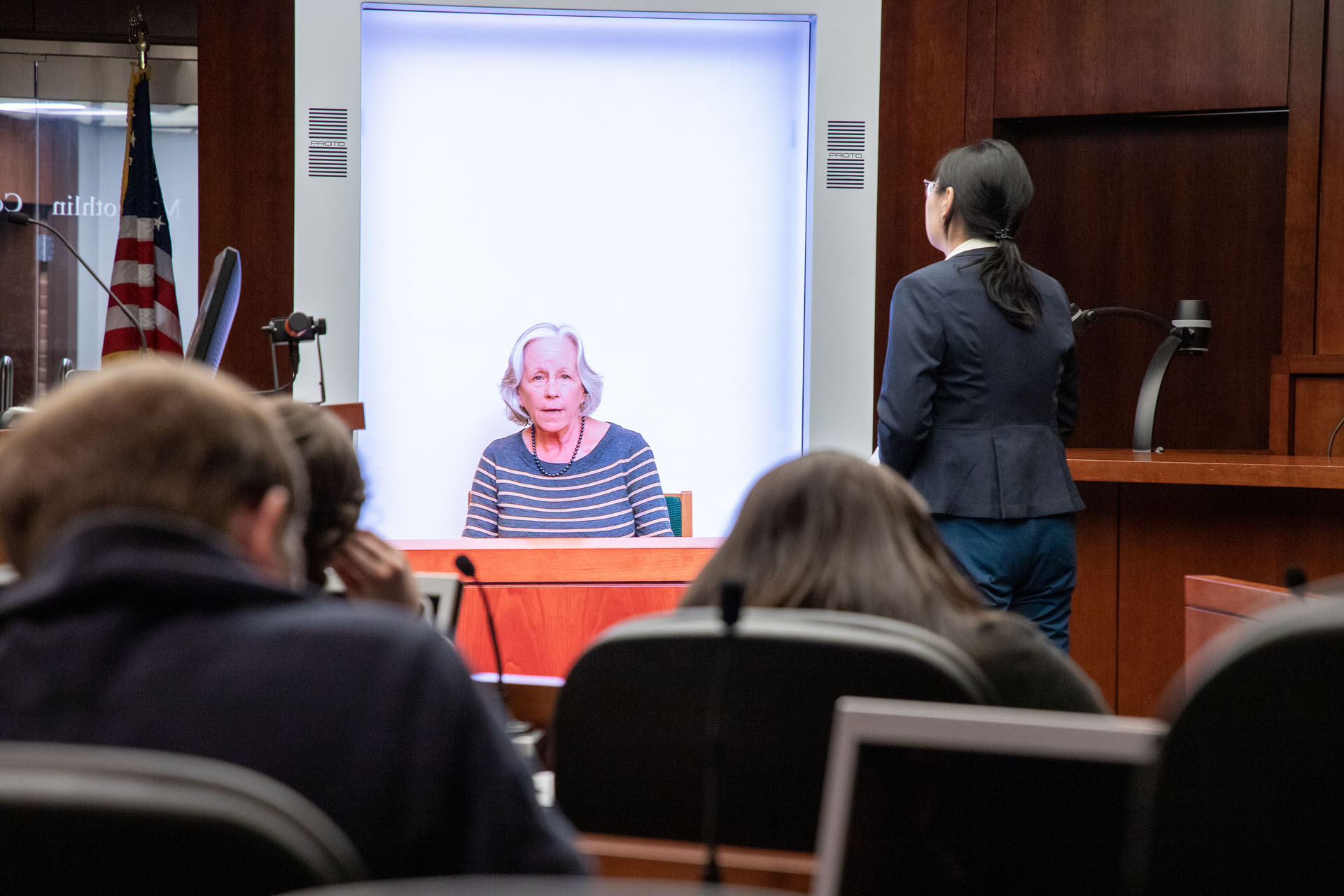Beam me up, counselor. Are hologram witnesses headed to court?
[1/2]David Morill for William & Mary Law School Purchase Licensing Rights
May 16 (Reuters) - Judge John Gibney Jr wasn’t sure what to expect last month when he presided over a trial that included testimony from hologram witnesses.
Although the trial was mock, the hologram witnesses seemed real as they were beamed full-size into the courtroom, said Gibney, who sits on the U.S. District Court for the Eastern District of Virginia.
Gibney said the appearance of the hologram witnesses during the mock trial at William & Mary Law School in Williamsburg, Virginia, wasn’t as good as having a genuine human being in the courtroom, but it was superior to seeing them on a video screen.
“The improved definition in the picture gave the people watching and hearing the witness a better chance to evaluate their credibility,” he said.
William & Mary’s Center for Legal and Court Technology has spent the past four months experimenting with hologram court witnesses through a partnership with Proto Inc, a California-based hologram company.
Proto loaned the center an Epic—a unit roughly the size of a phone booth—which it used in four mock trials this year led by federal and military judges. The hologram witnesses appeared as though they are in the courtroom, albeit behind a piece of glass and with a several second delay when responding to questions.
“I believe it’s radically different than any type of video conferencing we’ve ever used,” said center director Fredric Lederer.
Holograms have the potential to make witness testimony more convenient and accessible should courts and administrative agencies adopt the technology, Lederer said. However, it’s not yet clear whether hologram witness testimony would pass constitutional muster, he said.
The Confrontation Clause grants those facing criminal prosecution the right to confront their accusers. And while courts have allowed some child witnesses to testify remotely in criminal cases, the U.S. Supreme Court has yet to clarify the matter as to adult witnesses, Lederer said.
And then there's the price tag. An Epic unit costs about $65,000, although they can be leased for less. Tech glitches may also be a factor. Because the system relies on the Internet, the William & Mary center ran into a few bandwidth issues during testing, Lederer said.
Proto CEO David Nussbaum said he had not considered the use of its hologram units in courts until Lederer contacted him. Nussbaum sees big potential for courts to take advantage of the technology, which is now used mainly used by advertisers, celebrities and educators.
There is a strong case to be made, Lederer said, that holograms are similar enough to in-person testimony that they comply with the law.
“COVID has shown us that sometimes you need a meaningful alternative to people being in the courtroom,” he said.
Read more:
Sign up here.
Our Standards: The Thomson Reuters Trust Principles.






